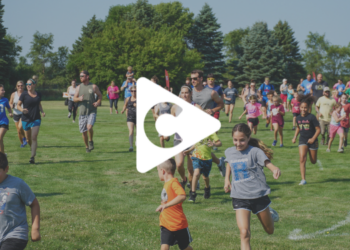Parks and Recreation director, Jason Schaitz, provides examples of necessary camp documentation and record keeping advice to improve camp operations.
It is extremely important to keep well organized documentation and records on your camp operations as well as the administrative aspects of camp. Make policies on retaining and organizing your documents to ensure you are consistent with how you organize, file, keep track of and dispose of your records.
Below are some of the more important records you should be keeping organized at camp. Larger organizations may have separate departments that do some of this work, but it is always a good idea to have copies of every type of documentation that comes from your camp program.
Camper and Parent Information
This is all the information, at a minimum, you should be collecting for campers at the point of registration:
- Detailed contact information.
- Birthdays and age verification documents when appropriate.
- Allergies
- Swim levels.
- Authorized pick up lists.
- Special needs.
- Medications.
- Signed waivers.
- Signed code of conduct.
Administrative Documents
There are many administrative-type documentation to keep track of, not only for your organization, but for your camp in general. Here are some examples of administrative documents that should be organized and readily available when needed:
- Insurance certificates.
- Receipts.
- Tax information.
- Tax exempt paperwork and certificate.
- Not for profit credentials.
- Contracts.
- Ownership or lease documents.
- State or local licensing documentation.
Human Resource Documents
Your HR documentation is everything you need for yourself and your employees. Each employee should have a file with all their employment documentation. This includes:
- New hire paperwork.
- Background screens.
- Certifications.
- Training documentation.
- Evaluations.
- Discipline reports.
- Separation or termination documentation.
- Staff incident or accident reports.
- Employee benefits paperwork.
Financial Reports
Financial documents and reports are important for any camp or recreation operation. These documents should also be reviewed by your finance department, accountants or financial advisors. Internally, multiple staff members should always be involved in everything regarding finance to prevent any sort of theft or fraud by any single individual.
- Budgets.
- Revenue and expense reports.
- Balance sheets.
- Cash flow reports.
- Tax filings.
- Bank and credit statements.
Camper Reports
Keeping detailed records and reports for campers throughout the duration of camp is important to ensure you know when campers were at camp, as well as everything that may have happened while they were there.
- Attendance records.
- Incident and accident reports.
- Discipline reports.
- Camper log sheets.
- Roster reports.
- Medication tracking and reporting.
Facility Inspections
Having detailed maintenance and inspection reports will help protect you from liability if something breaks or fails. It will also assist with your preventative maintenance and replacement plans and schedules.
- Maintenance reports.
- Facility and equipment inspections.
- Repair reports.
- Facility plans or historical documents.
Electronic Records
Many of the records you create while operating a recreation program will be electronic. Always try to put things in writing to parents and stakeholders so you have back up if anything ever comes up with that person or situation. It is always a great idea to have a history of all your electronic records.
- Email history.
- Camp registration system data.
- Social media history.
- Past flyers and marketing material.
Miscellaneous
All programs are different and use all sorts of types of documentation. Below are a few more examples of documents that can benefit your program operation:
- Daily communication logs for staff-to-staff communication.
- Staff to parent communication logs.
- Parent feedback.
- Surveys.
- Post camp improvement evaluations.
- Grant reporting.
Great camp documentation and record keeping will help limit your liability exposure, will assist you when something urgent may come up, and will help you keep track of past issues. You can always look for new opportunities to improve your camp operation.
For more resources on camp documentation, visit The Summer Camp Source website.











